I have been looking for an answer, but maybe because I am searching the wrong terms or concepts - I did not yet find any lead on how to perform operations on extracted arguments .
I have an array, which is dynamic ( I can not predict how many $vars or of what name or type )
global $o99_option;
extract( $o99_option );
so now, theoretically, I can have any number of $vars with any possible name..
example :
$first_var = 'first-var';
$my_second_var = 'another';
$enigma = NULL;
$answer = '42';
my question is - how can I perform operations on the result of extract ( after extraction ) in a manner that will effect all the created $vars ?
for example, let´s say I want to trim all of those variables - How do I achieve that ?
( that , In my twisted mind, should have the same effect as
foreach (extract( $o99_option ) as $single_var ){
do_something($single_var);
}
)
Edit I : So, is there a way to perform operations on all extracted elements ? ( assuming I DO need to extract them ..) Or should I always do that BEFORE the extraction ( for example with the help of array_map() ) - or, should I , like people here suggested just forget that extract ever existed never ever use it..
Edit II :
Sure, like many here said , I can also do
$first_var = $o99_option['first-var']; $my_second_var = $o99_option['my_second_var']; $enigma = $o99_option[enigma]; $answer = $o99_option['answer'];
but
1) it seems a little absurd doing that for 100+ variables, and 2 ) what to do with the ones that I need to use their value as name ?
right now, for example, I use
${$title_field} = $formdata[$post_title_field];
where I know that $title_field exists as $o99_option['title_field'], and therefore exists as a variable after extract ..
Again, I might be approaching that all wrong, but up until now the script works great , and actually , the first comment by @Mark Baker ( using array_map() ) might be the best option when doing so BEFORE the extract ...
